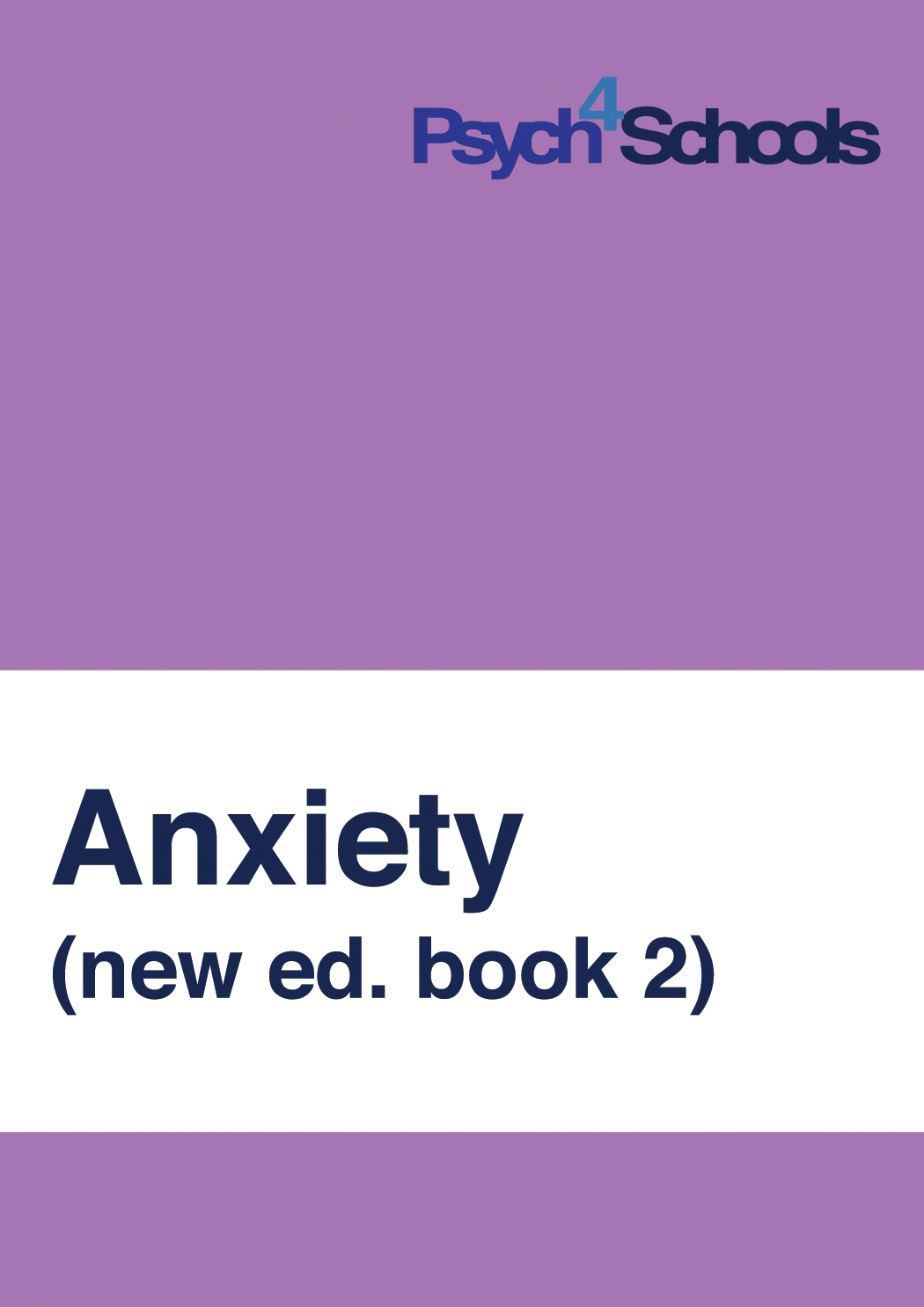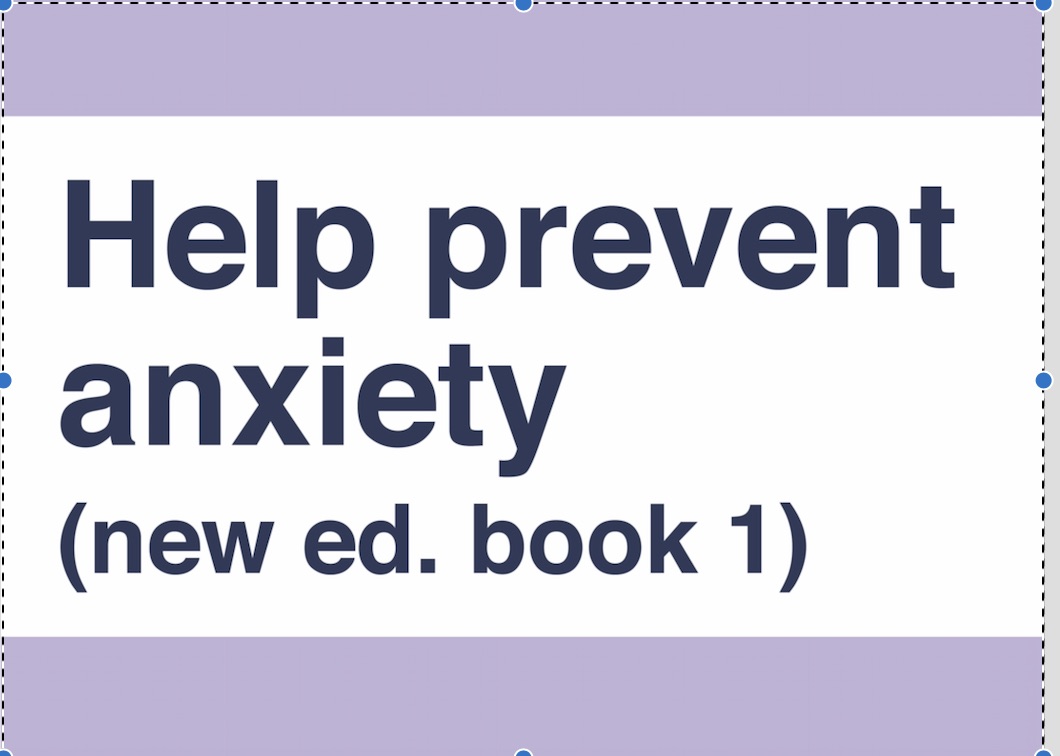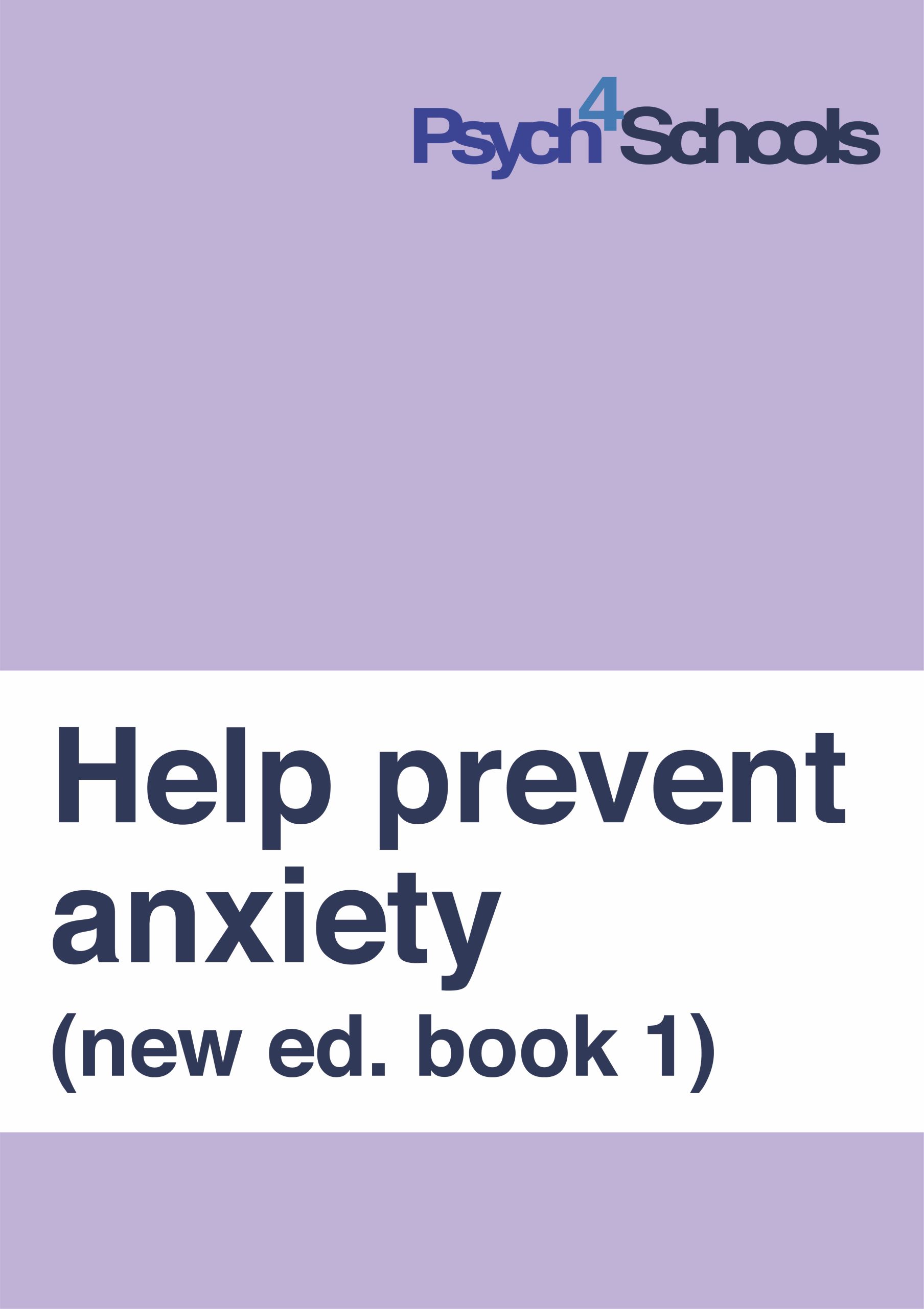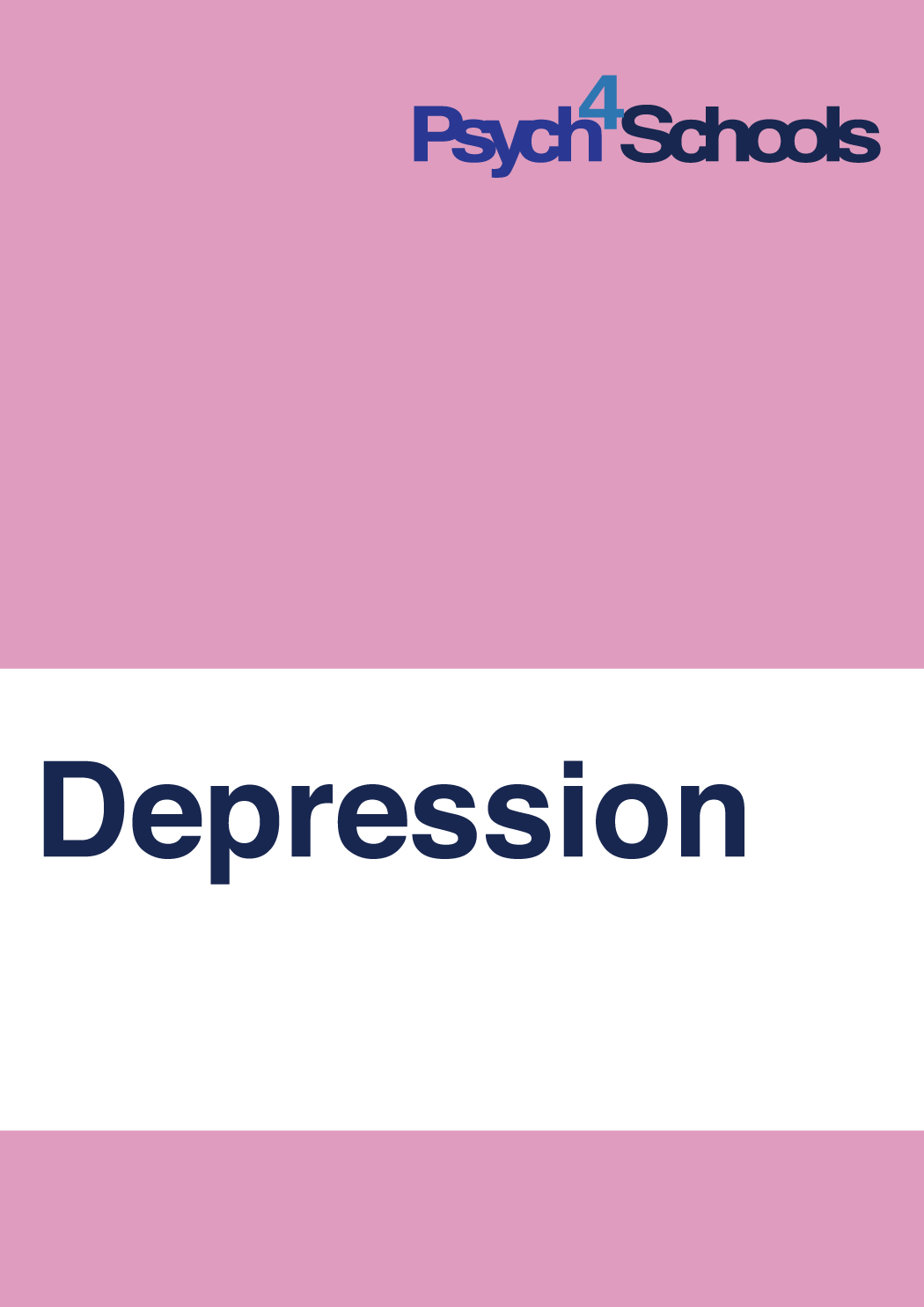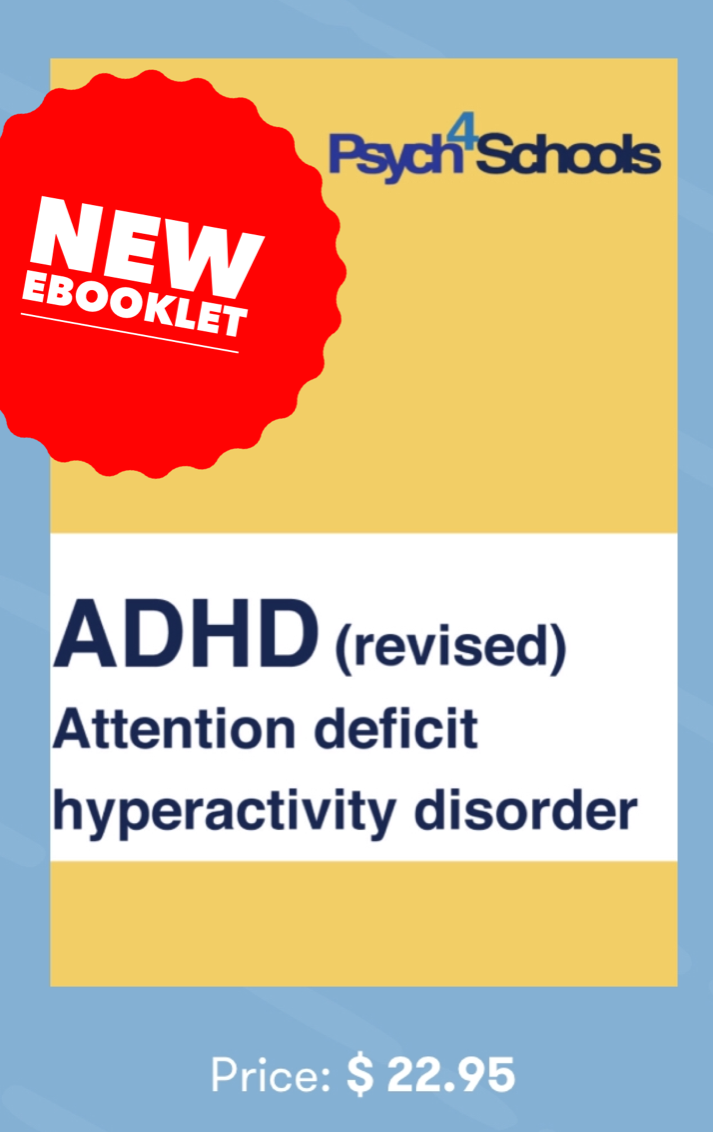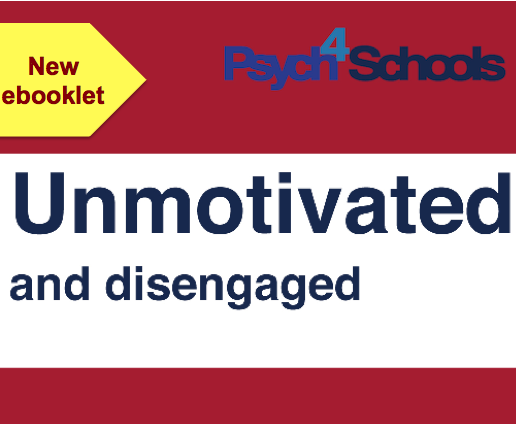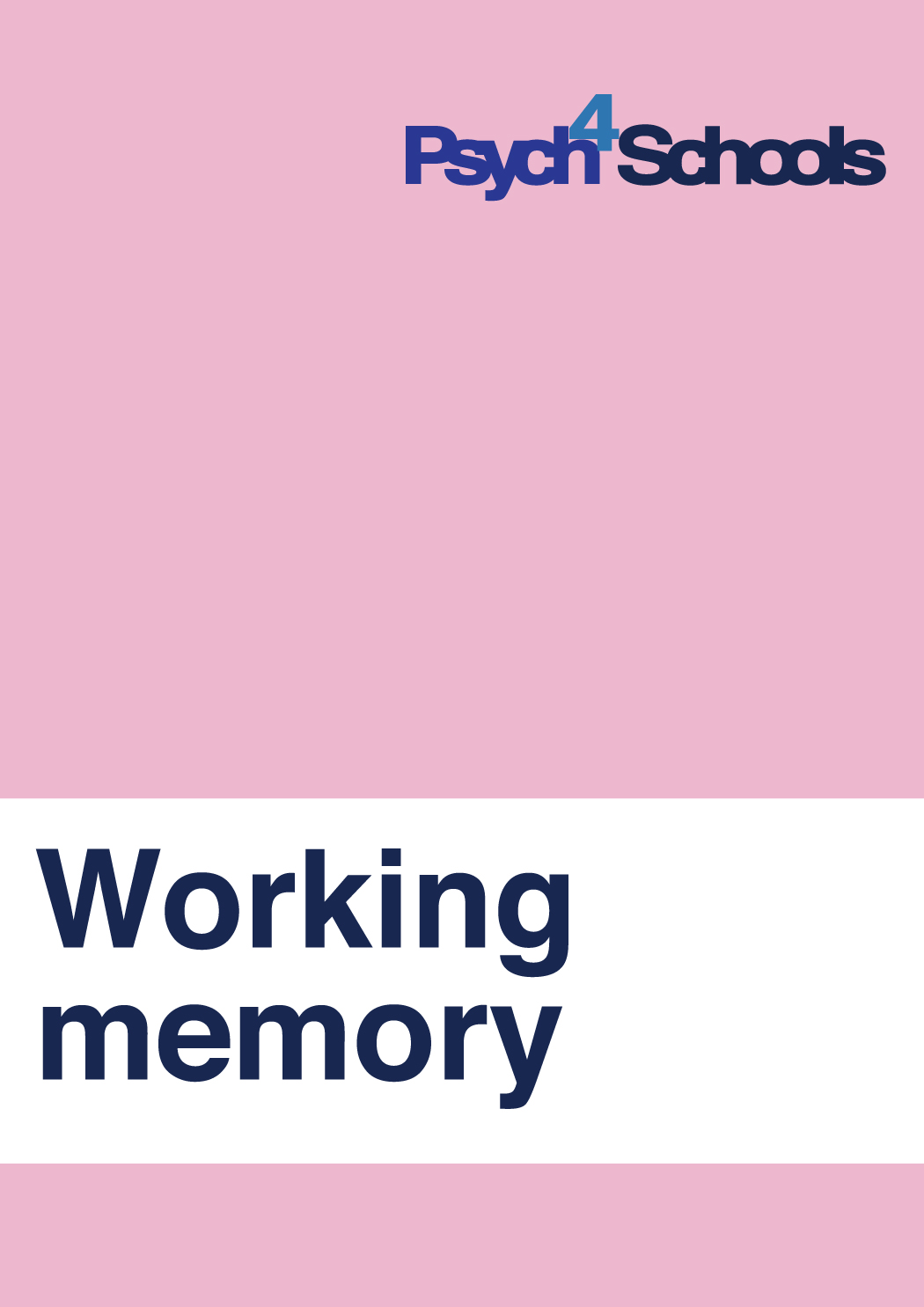Question & Ideas: Homework Issues
The question below was featured on our forum a few years ago. Since then we’ve had lots of people offer suggestions. We’ve summarised some of the responses below and added a few of our own. Question: ‘Hi, I have a student who has trouble getting his homework completed. This means he tends to hand in
Read moreChildren who have experienced or witnessed a traumatic event in the past two weeks Children who experience, witness or hear about a traumatic event may be affected emotionally, socially and physically. Most children will recover after several days though for some it might take several weeks. A traumatic event is an event that involves actual
Read moreWorking with children who are anxious (new ed. book 2) available now
Many people, including young children and adolescents, struggle with anxiety on a daily basis. Australian school psychologists have identified anxiety as the most common issue encountered in their work with students and their families in primary schools;[1] with one in five children and adolescents having elevated symptoms of anxiety.[2] High levels of anxiety negatively impact
Read moreAustralian school psychologists have identified anxiety as the most common issue encountered in their work with students and their families in primary schools.[1] One in five children and adolescents have elevated symptoms of anxiety.[2] Early intervention is key to promoting positive mental health and strong learning outcomes. This ebooklet provides a brief overview of anxiety and a
Read moreHelp prevent anxiety (new ed. 1)
Australian school psychologists have identified anxiety as the most common issue encountered in their work with students and their families in primary schools.[1] One in five children and adolescents have elevated symptoms of anxiety.[2] Early intervention is key to promoting positive mental health and strong learning outcomes. This ebooklet provides a brief overview of anxiety and a
Read moreHelp prevent anxiety (new ed. book 1)
Australian school psychologists have identified anxiety as the most common issue encountered in their work with students and their families in primary schools.[1] One in five children and adolescents have elevated symptoms of anxiety.[2] Early intervention is key to promoting positive mental health and strong learning outcomes. This ebooklet provides a brief overview of anxiety and a
Read moreDepression is a mental illness that negatively affects thinking, perceptions, emotions and behaviours. The impact of depression on a child is more severe than any other mental health disorder.[1] AACAP (2007) ‘Practice Parameter for the Assessment and Treatment of Children and Adolescents with Depressive Disorders.’ Journal of American … Continue reading While most children or adolescents
Read moreTechnologies for students with dyslexia: Part 2 Writing
By Jemima Hutton Psych4Schools Guest Blogger Dear teachers, This is the second of two blogs, the first related to reading, and this one to writing. Both use scenarios to help you consider ways to implement digital technologies in your classroom. I have specifically written this way in the hope that you will act, not
Read moreNew release: Updated Intellectual Disability (revised) ebooklet
This week we released the revised Working with children with intellectual disability (revised) ebooklet. The revised ebooklet includes recommendations for how to help students with a mild to moderate intellectual disability in the classroom. Topics covered include: Working with a teachers aide and others in the classroom General classroom strategies Giving instructions Make reasonable adjustments to
Read moreRevised ADHD ebooklet now available
The latest up-to-date strategies for working with a child with ADHD in your classroom is now available. The booklet includes recommendations for assisting the child in the following areas: General strategies Improve concentration and reduce attention drifting How teachers can help How the child can help themselves Adapt the way you give instructions Modify
Read moreWrite a good things diary (aka a gratitude journal for the classroom)
The last days of school are upon us, and both students and teachers are eager for the holidays. At this time, motivation can drop, as we are all tired from the extra work requirements of exams and reports, and the end of year school and social activities. ‘This is a time when grumpy behaviour from
Read moreNew release: Working with children who are disengaged and unmotivated in the classroom
Did you know that up to 20 per cent of students in any year are described as disengaged? [1]Angus, M., McDonald, T., Ormond, C., Rybarcyk, R., Taylor, A., & Winterton, A. (2009). Trajectories of classroom behaviour and academic … Continue reading This impacts significantly of the student’s learning outcomes. Many do not catch up academically in later years.
Read moreThere are about 200 serious or chronic health conditions affecting Australian children and adolescents. A health condition that lasts three or more months, affects a child’s daily living, requires frequent hospitalisation, extra home care, and/or extensive medical care and treatment nationwide.[1] Mokkink, L. B., van der Lee, J. H., Grootenhuis, M. A., Offringa, M., Heymans, H.
Read moreParents who are overprotective are sometimes referred to as ‘helicopter parents’ as they relentlessly hover over their children, trying to micro-manage their affairs. These parents pay extremely close attention to their children to try to protect them from failure, rejection and injury. They want ‘happy’ children and believe teachers should pay attention to their children
Read moreWorking memory refers to the ability to hold information in short-term memory while simultaneously processing it. We use working memory to meaningfully participate in everyday activities such as conversations, to decode unknown words when reading, and to do mental arithmetic. For example, we may use our working memory to decode an unknown word when reading
Read moreA recent Australian study revealed that the top two things children worry about are friends and family dying, and the environment[1] (2007, no author) ‘Behind the news surveys Australian children and asks what they worry about’ sourced … Continue reading Other top worries include family issues, concerns about physical appearance, losing or keeping friends, homework pressures, the future,
Read more

